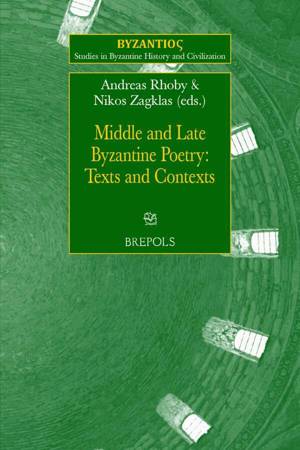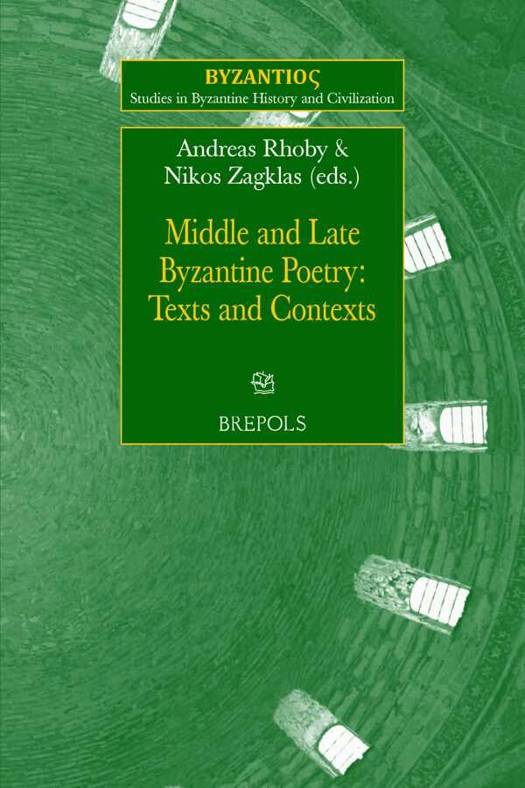
Bedankt voor het vertrouwen het afgelopen jaar! Om jou te bedanken bieden we GRATIS verzending (in België) aan op alles gedurende de hele maand januari.
- Afhalen na 1 uur in een winkel met voorraad
- In januari gratis thuislevering in België
- Ruim aanbod met 7 miljoen producten
Bedankt voor het vertrouwen het afgelopen jaar! Om jou te bedanken bieden we GRATIS verzending (in België) aan op alles gedurende de hele maand januari.
- Afhalen na 1 uur in een winkel met voorraad
- In januari gratis thuislevering in België
- Ruim aanbod met 7 miljoen producten
Zoeken
€ 100,70
+ 201 punten
Omschrijving
It is only in recent years that Byzantine poetry - a long-neglected aspect of Byzantine literature - has attracted the attention of philologists, literary and cultural historians. This holds true especially for the poetry written in middle and late Byzantium. Though many collections of poems are available in modern critical editions, a considerable amount of texts still remains completely unedited or accessible only in outdated and unreliable editions. Moreover, many works of this period have never been studied thoroughly with regard to their cultural impact on society. Issues of authorship and patronage, function, literary motives, generic qualities, and manuscripts still await further study. This volume aims to take a step to fill this gap. Although it includes studies on poetry from the early tenth to the fifteenth centuries, the main focus is placed on the Komnenian and Palaeologan times. It presents editions of completely unknown texts, such as a twelfth-century cycle of epigrams on John Klimax. It includes studies on various types of poetry, including didactic, occasional, and even poetry written for liturgical purposes. By analysing these works and placing them within their literary and socio-cultural context, we can draw conclusions about the cultural tastes of the Byzantines and acquire a more nuanced picture of middle and late Byzantine poetry.
Specificaties
Betrokkenen
- Auteur(s):
- Uitgeverij:
Inhoud
- Aantal bladzijden:
- 413
- Taal:
- Engels
Eigenschappen
- Productcode (EAN):
- 9782503578866
- Verschijningsdatum:
- 26/10/2018
- Uitvoering:
- Paperback
- Formaat:
- Trade paperback (VS)
- Afmetingen:
- 155 mm x 231 mm
- Gewicht:
- 680 g

Alleen bij Standaard Boekhandel
+ 201 punten op je klantenkaart van Standaard Boekhandel
Beoordelingen
We publiceren alleen reviews die voldoen aan de voorwaarden voor reviews. Bekijk onze voorwaarden voor reviews.









